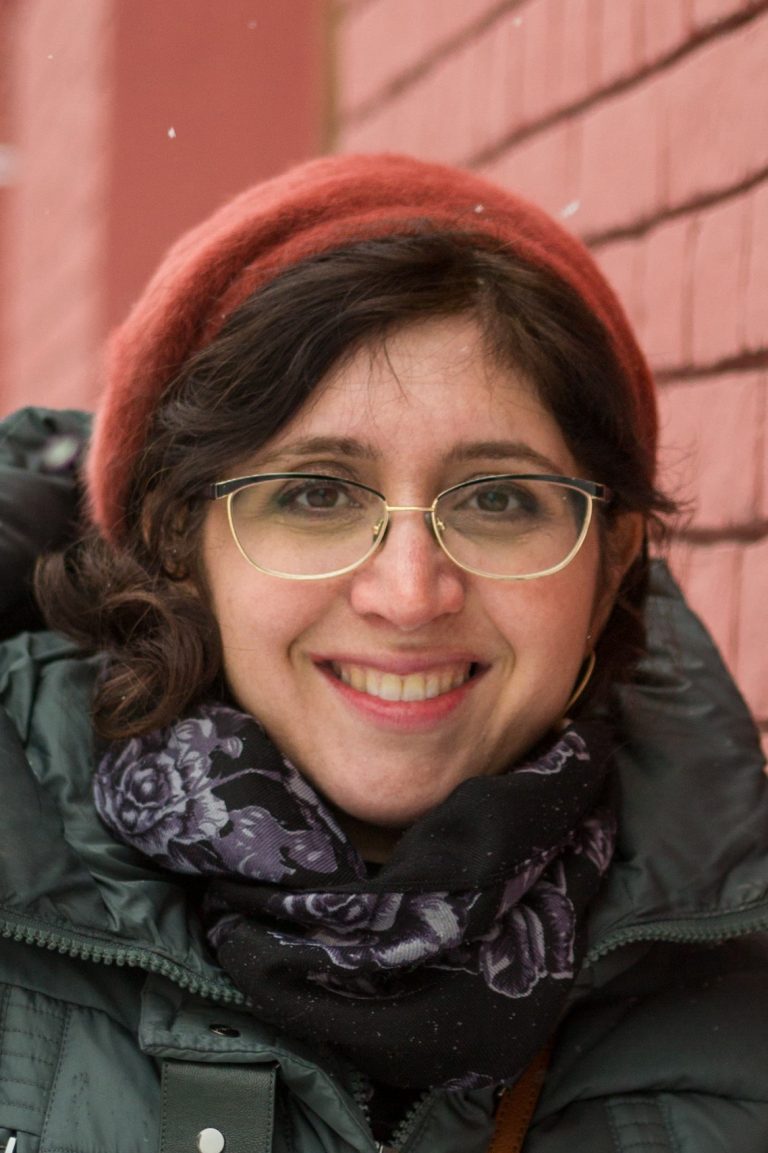An interview with Esther Akiva, a member of the Heschel Center’s managing board and an Alumna of the Network of Local Sustainability Centers, coordinated by the Heschel Center.

Esther Akiva is a religious, mother of 5, originally from Brooklyn, New York. In 2013, she and her family left the West Bank settlement of Eilon Moreh, where they had lived for 15 years, for the southern periphery town of Netivot. It was there that she participated in the Heschel Center training program, serving as coordinator of the upstart Local Sustainability Center in Netivot. That’s where it all began.
“I left the West Bank because there was always a tension existing in our reality. On the one hand, there was a strong connection to the place where are Fathers lived and the Land of the Torah, but on the other hand, there was the reality of the present, where we saw the quality of life of Palestinians who lived right next to us deteriorate,” she said. “Finally, I decided I cannot live there anymore. We were looking for a place that will serve a purpose in our lives and that we will feel good about. That is how we reached the Negev. After several years in Netivot, we moved to Kibbutz Ta’as,” where she remains deeply involved with Netivot.”
A few months after she moved to Netivot, one of her new neighbors asked her whether she wants to be a sustainability coordinator. “I asked her: what is sustainability???” Her neighbor responded, “Come meet someone and he will explain”. That is where she met Ran Raviv, director of Local Sustainability Centers Network at the Heschel Center.
“Right there during the first meeting, I understood what is sustainability and that these values were guiding me for a long time, both in the environmental and the community parts,” she said. “I just did not know to give it a name”.
That is where she understood there is a framework and a structure to the values she has believed in and lived for years. “Ever since”, she added, “Ran and Lorit [Ran Raviv and Lorit Leibowitz, at Heschel’s Center for Local Sustainability at the Heschel Center], have served not only as a source of inspiration, but also [became] some of my best friends.”
From that moment, for her, the regional network of the sustainability centers became an area that touches on many intersections of social justice and community building. She became one of the most central political activists in the Negev, striving to promote sustainable regional policy in areas related to health, environmental justice, and education. This includes supporting local efforts to prevent mining operations at Sdeh Barir, which would have serious environmental consequences for the surrounding areas.
As a sustainability coordinator in Netivot, she established a regional forum. “One of the main takeaways from Heschel’s guidance was that in order for something to change, we need to move from the community level to the municipality level, and then to the regional level. The forum I established included the environmental, community, education and welfare departments. When I left the sustainability center after three years, I did not know the impact of my position. The sustainability center kept operating but it downsized its work. But what ended up happening is that the municipality’s urban plan for sustainability became huge. Today, the town of Netivot has a 10-year masterplan for sustainability with a huge budget that includes the renewal of commercial areas and work at schools. This brand of sustainability, the understanding that it must be something on the municipality level made a tremendous impact,” she said. ”We planted the seeds [for this to happen] everywhere: in the schools, in the various community centers, in the municipality.”
Last year, Esther was voted to be a part of the Heschel Center’s Managing Board. “My decision to join the Board has everything to do with my “Hakarat Hatov” (recognizing the good) in the Heschel Center and a desire to take responsibility and directly affect an organization that shaped my sense of responsibility as an adult. In a way, I can divide my life into two parts: before I moved to Netivot, and after, where I decided to open a new chapter of my life and live by my set of values. The Heschel Center shaped the second part of my life. “
Today, Esther is self-employed, working with the towns’ association in the Negev. She leads regional processes that interface between municipalities and the educational system. She is about to receive her Masters degree in Geography and Environmental Planning and is writing her thesis on urban renewal in the periphery. She serves on the Heschel Center’s Managing Board.
The Local Sustainability Center at the Heschel Center promotes 15 Local Sustainability Centers (LSC), mainly in the social and geographic periphery of Israel. Each center helps develop frameworks and programs to galvanize local community and municipality leaders to implement sustainable practices through local community capacity building. Each center is designed by community members to address the unique set of priorities and needs of their community.
Interview conducted by Tamara Sharon Ross
